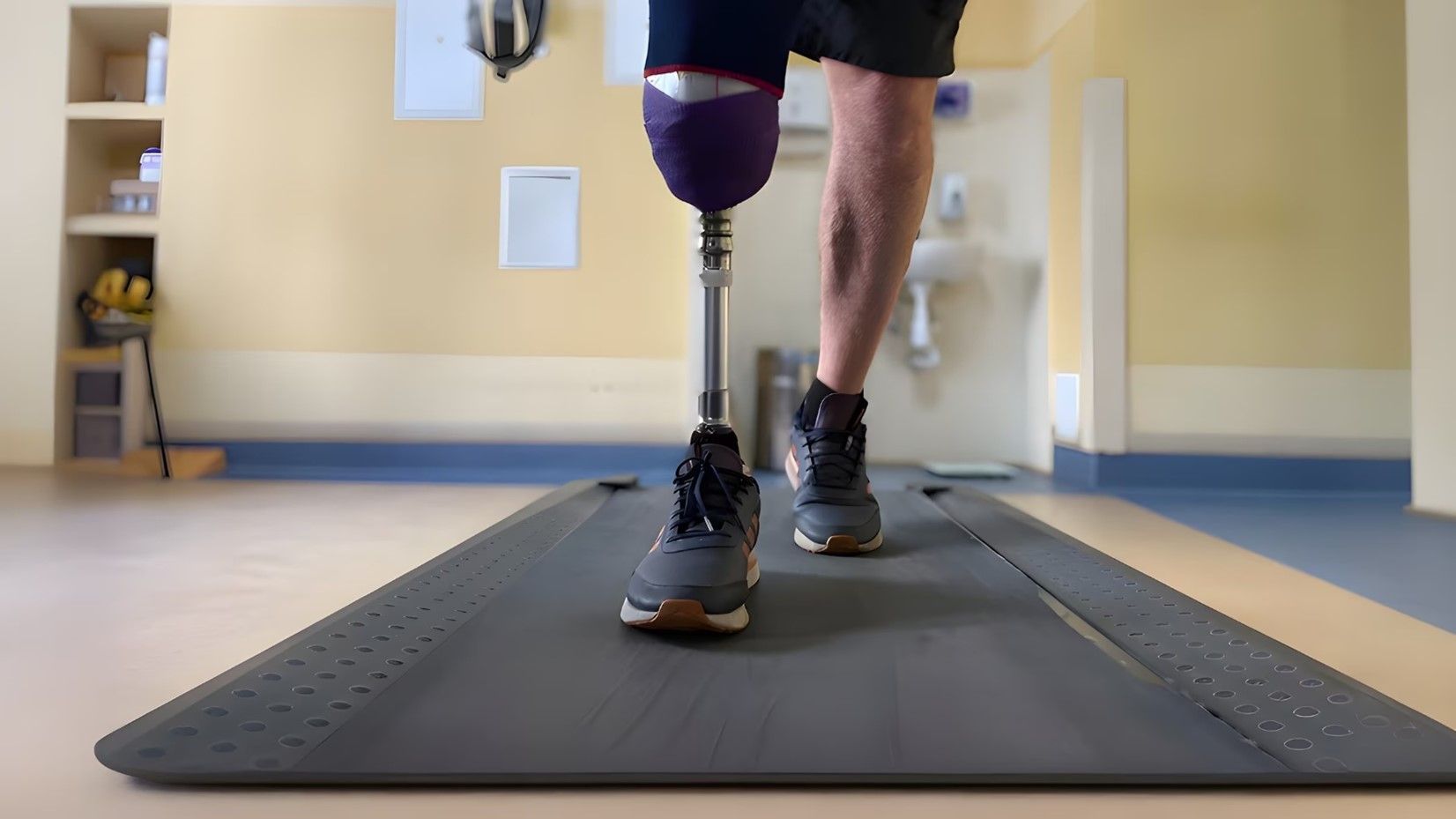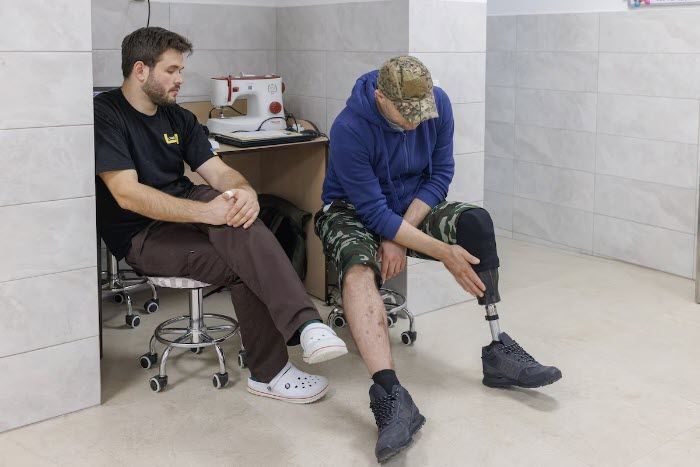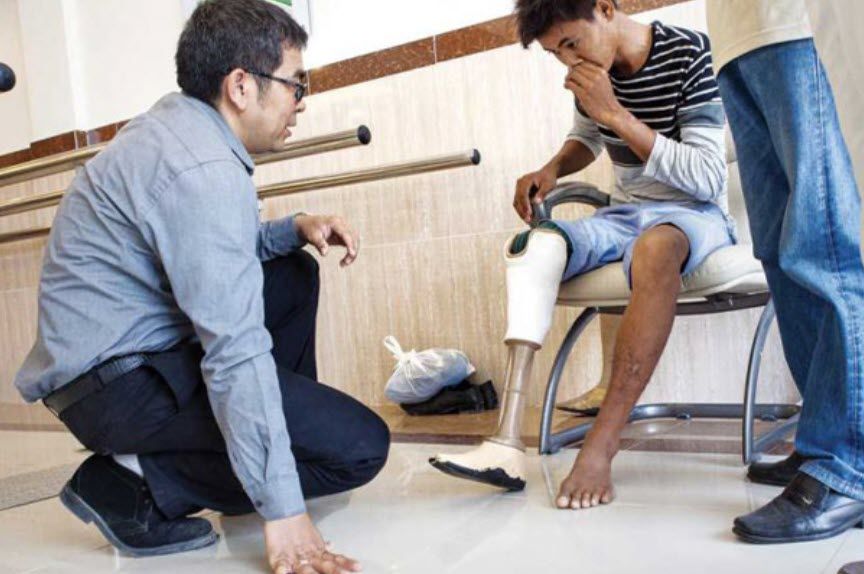The Phnom Penh Post Says Innovative Trial To Put Printed Prosthetics In Reach
TNia Technologies is proud to be featured by Audrey Wilson in The Phnom Penh Post for its work with Exceed Social Enterprises to put 3D printed prosthetics in reach. Below is is an excerpt from the article “Innovative trial to put printed prosthetics in reach”. You can read the full article here.
In a waiting room in Stung Meanchey last week, 21-year-old Ouk Vy sat patiently as technicians fitted him with a small socket to connect his right leg – which was amputated at the knee last year after a traffic accident – to a new prosthetic limb.
Vy then stood and took a step forward, as he has many times before.
This new socket is different from others he has worn out: it is the first to be made from a scan and then manufactured from scratch in just a few hours in the only 3D-printing lab for below-the-knee (more technically, “trans-tibial”) prostheses in Cambodia. The lab began its first clinical trial last week, and Vy was first in line.
Many standard prostheses have a lifespan of only a few years – and just a few months for growing kids. That means a lot of re-fittings. At its core, the 3D-printing process mirrors that of being fitted for a normal prosthesis; it’s just easier – and, ideally, more comfortable for the patient.
Traditionally, a prosthetist – someone who makes prosthetic items (which are known in the trade as prostheses) – would wrap a limb at the stump to protect it; then make a plaster mould; then cut it off, fill it in, strip the bandage and wait for the plaster to dry. But with a 3D scanner, a digital replica of a limb can be made in just a half hour – and there’s no mess.
“That is the holy grail as a prosthetist,” says Ken McCrea, the Scot who oversees the project. “Getting exactly what you want. And it’s replicable.”
Moreover, that model then exists on a computer and can be digitally tweaked for particularities rather than with hand tools. Finally, an operator sends the data to the printer and within three to nine hours – depending on whether it’s a socket or something larger – a polypropylene copy appears.
The four-month clinical trial applies existing, relatively inexpensive technology in a new way to address a persistent problem: the demand for new prostheses in a country like Cambodia.
McCrea is the head of UK-based Exceed Social Enterprises, which is running the project here in partnership with Nia Technologies, a non-profit that has piloted two trials in Uganda.




